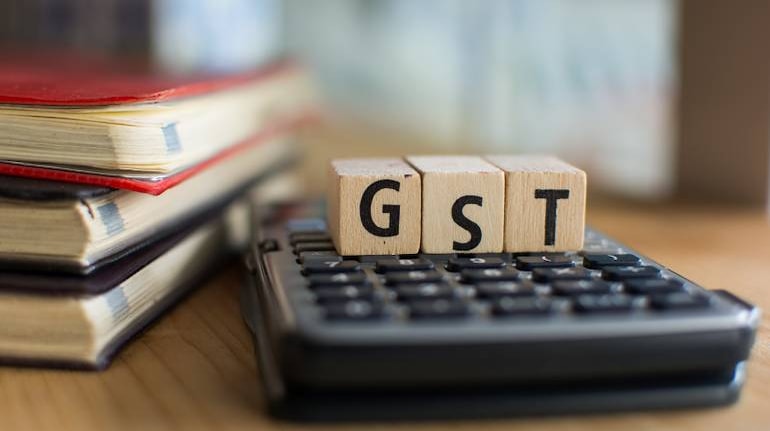
The GST Council on January 10, doubled the exemption limit for Goods and Services Tax (GST) registration to Rs 40 lakh from Rs 20 lakh to ease cost of compliance for small taxpayers or micro, small and medium enterprises (MSMEs).
This means businesses with an annual turnover under Rs 40 lakh will now be exempt from registration and payment of GST.
In case of special category states such as North-Eastern and hilly states, the exemption limit will be doubled to Rs 20 lakh, finance minister Arun Jaitley said.
Jaitley said that states have been given an option to increase the exemption limit to Rs 40 lakh and will be given the discretion to ‘opt out’. Similarly, in case of some states such as Puducherry, where assessee base is low, states will have the option to ‘opt in’ or move to a lower exemption and registration limit.
States would have the option to decide about one of the limits within a week’s time, the finance ministry said in a statement, adding that the threshold for registration of service providers would continue to be Rs 20 lakh and Rs 10 lakh in case of special category states.
Revenue secretary Ajay Bhushan Pandey said that as many as 20 lakh taxpayers are expected to benefit from the Council’s decision taken today.
However, the government will have to take a revenue hit of Rs 5,200 crore on an annual basis, while also witnessing a possible reduction of the tax base, sources said.
"Increasing the threshold limit (in general) from Rs 20 lakh to Rs 40 lakh...should benefit large number of taxpayers. Also, increasing the threshold to Rs 40 lakhs instead of Rs 75 lakhs (as speculated) is better because while we need to provide relief to small taxpayers, it is equally important to expand the tax base," said Pratik Jain, Partner at PwC.
Permitting states to increase threshold limit to Rs 40 lakhs may lead to multiple threshold limits across the country, Jain said.
The Council headed by Jaitley also approved the composition scheme for services and raised annual threshold limit to Rs 1.5 crore from Rs 1 crore.
Besides, the scheme will be available for small service suppliers or mixed suppliers (goods and services), with a GST rate of 6 percent and having an annual turnover of up to Rs 50 lakh in the preceding financial year.
"Introduction of composition scheme for service providers (which was earlier available only for restaurants) having turnover upto INR 50 lakh shall definitely benefit small business like hotels, beauty parlours, etc," Jain said.
The composition scheme is an alternate method of taxation that allows small businesses with annual turnover up to Rs 1 crore (now Rs 1.5 crore) to pay tax at a concessional rate (without claiming the benefit of input tax credit) as well as reduce the compliance cost. Currently, manufacturers, traders and among services, only restaurants can opt for the composition scheme.
Dealers who opt for composition scheme will have to pay taxes quarterly, while filing one annual return, along with a simple declaration.
These decisions taken by the Council will be effective April 1, 2019.
"The increase in the threshold to Rs 40 lakh and reduction in the return filing requirements to one per year for composition dealers would reduce the number of returns to be filed on the GST portal and reduce the overall load,” said MS Mani, Partner at Deloitte.
OTHER DECISIONS
The Council has allowed the Kerala to impose a cess of up to 1 percent on intra-state supply of goods and services for a maximum period of two years, Jaitley said.
The decision was taken after devastating floods swept through the Kerala in August, 2018, leading to severe loss of life and property.
"Levy of this cess would enable states to collect additional funds in the event of any calamity. Actual enactment of these measures would present an interesting proposition, as this could be the start of deviations from uniform rates across India under GST...the GSTN portal would also need to have a functionality built it for the calamity cess to facilitate collections," said Saloni Roy, Senior Director at Deloitte.
A group of ministers (GoM) will be set up to examine the proposal of giving a composition scheme to boost the residential segment of the real estate sector. In addition, a panel will also be set up to examine uniformity of taxation on lottery or other issues arising out of it, Jaitley said adding that these two panels were formed as views were divergent.
The GST Council met on January 10, amid heightened expectations of rate cuts on products like cement, bringing under-construction residential properties in the 5 percent slab without getting the benefit of claiming input tax credit (ITC).
Currently, 18 percent GST is levied on under-construction residential properties. However, the effective rate comes down to 12 percent after abatement for land value.
Homebuyers of real estate properties do not have to pay GST if they purchase a ready-to-move-in property after the issue of completion certificate as it considered as ‘transfer of property’ and comes under state’s jurisdiction of stamp duty. This generally makes under-construction properties costlier for the buyers.
Regarding reducing the tax rate on cement from 28 percent rate to a lower slab, Jaitley said that further rate reduction will happen moves up.
Discover the latest Business News, Sensex, and Nifty updates. Obtain Personal Finance insights, tax queries, and expert opinions on Moneycontrol or download the Moneycontrol App to stay updated!
Find the best of Al News in one place, specially curated for you every weekend.
Stay on top of the latest tech trends and biggest startup news.